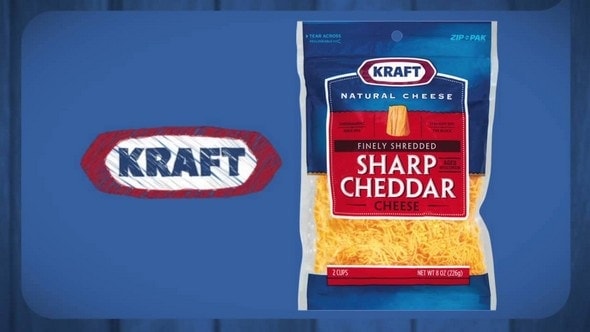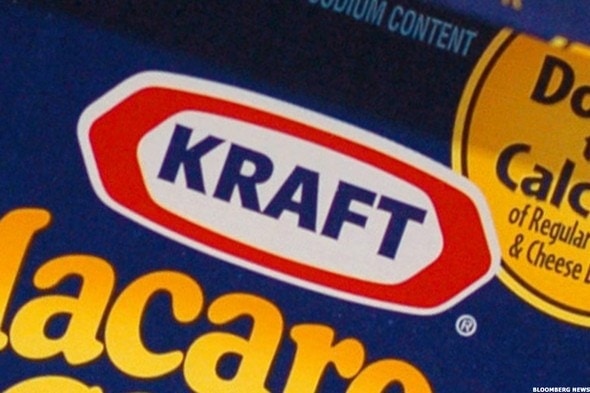Kraft Foods is one of the worlds biggest food processing and grocery conglomerates headquartered in Illinois, USA. The conglomerate has under its umbrella numerous prestigious brands like Cadbury ’s, Jello, Maxwell House and Heinz. The company owns a very broad product portfolio with the presence in almost all categories of processed foods such as meats, marinades, sauces, salad dressings, dairy products, chocolates, sandwich spreads, desserts, drinks, packaged meals, snacks, and condiments.
After the corporate restructuring in 2012, the company is currently called Mondelez Foods and it continues to sell most of its products under the Kraft Foods label. The company has an annual turnover of 26 billion USD as of the year 2016 and operations across the globe as well as multiple manufacturing facilities in various global locations. The company is also known for their signature recipes which are showcased using Kraft products.
Table of Contents
Strengths in the SWOT analysis of Kraft Foods
Strengths are defined as what each business does best in its gamut of operations which can give it an upper hand over its competitors. The following are the strengths of Kraft Foods:
- Successful mergers: The primary reason for the success of Kraft Foods is the successful mergers they had with companies like Cadbury’s and Heinz both of who were leaders and popular names in their own segments.
- Content marketing: As the number of brands have grown so has the advertisement space and the customer mind is cluttered with information of all kinds with the result that they forget the names of the brands.Kraft Foods was one of the earliest to start content marketing and they continue to do so through their CRM initiatives.
- Wide product portfolio: The company owns a very broad product portfolio with a presence in almost all categories of processed foods such as meats, marinades, sauces, salad dressings, dairy products, chocolates, sandwich spreads, desserts, drinks, packaged meals, snacks, and condiments.
- Popular brands: Kraft Foods has a host of popular brands under it namely Jello, Maxwell House, Oscar Mayer, Heinz, Cadbury’s. Lunchables, Velveeta, Philadelphia. These popular brands increase the goodwill in the minds of the customer for the brand Kraft.
- Wide distribution channel in the US: Kraft has an excellent distribution channel in the US and enjoys the trust and confidence of many retailers and wholesalers who push their products more.
- Kraft Recipes: The main target audience for Kraft products are homemakers and in order to capture this market Kraft has a very innovative way of including their labels in what is called as Kraft Recipes which are made using Kraft products and mixes. This has helped them to capture the mindshare of their target audience.
Weaknesses in the SWOT analysis of Kraft Foods
Weaknesses are used to refer to areas where the business or the brand needs improvement. Some of the key weaknesses of Kraft Foods are:
- Poor coverage in Europe and other markets: The company has poor presence in the markets other than the US like Europe and India and by merging with Cadbury’s it is trying to capture those markets where the confectionery brand is popular.
- Poor presence in organic markets: Most food processing companies are now entering into the organic foods market. But Kraft Foods has little or no presence in the organic foods market. This can be a critical weakness the business.
- Declining sales volumes: The sales volume for the Kraft Food brands have been decreasing owing to competition from multinational companies as well as domestic players. The high range of choices that customer has prevents them from being loyal to one single brand.
- Too many products and brands: The company is overburdened with too many products under it and in an age of innovation it is important to innovate in each of its products which is becoming impossible considering the numbers to be managed.
Opportunities in the SWOT analysis of Kraft Foods
Opportunities refer to those avenues in the environment that surrounds the business on which it can capitalize to increase its returns. Some of the opportunities include:
- High scope for food processing in India: The next big market for processed food will be India since the average per capita income is growing.Yet another advantage with India will be the proximity to raw materials since the country is predominantly agricultural.
- Changes in consumption patterns: In emerging economies, there is a shift of trends towards habits which were once concerned Western is now becoming the norm globally. Some of the habits include the preference for pre-processed food and growing need for cheese, butter and other dairy products.
Threats in the SWOT analysis of Kraft Foods
Threats are those factors in the environment which can be detrimental to the growth of the business. Some of the threats include:
- Completion: Kraft Foods faces a lot of competition from Nestle, Procter & Gamble, Glaxo SmithKline Beecham etc
- Cost Fluctuations: Food processing industry is highly dependent on the raw materials which are primarily farmed and the costs of which fluctuate excessively. It may not be possible to accommodate these fluctuations in the prices.
Liked this post? Check out the complete series on SWOT

